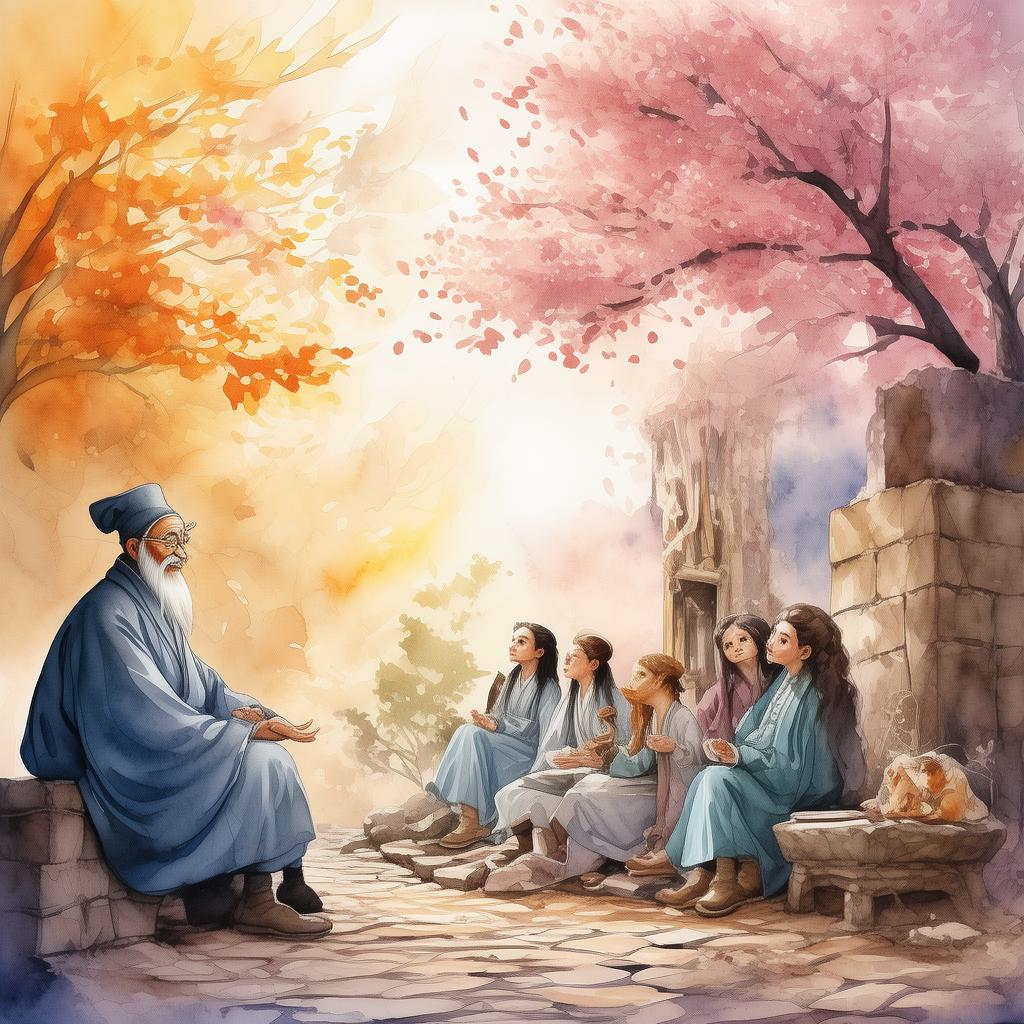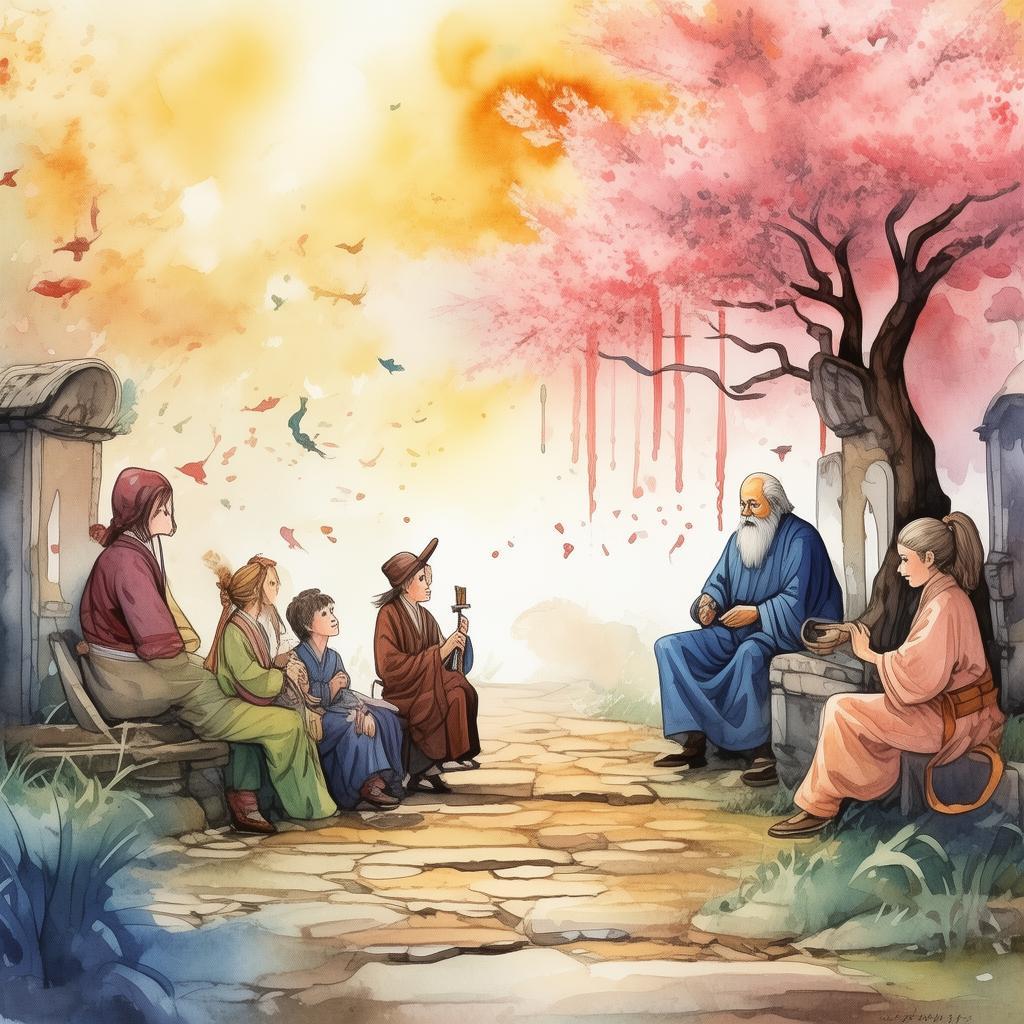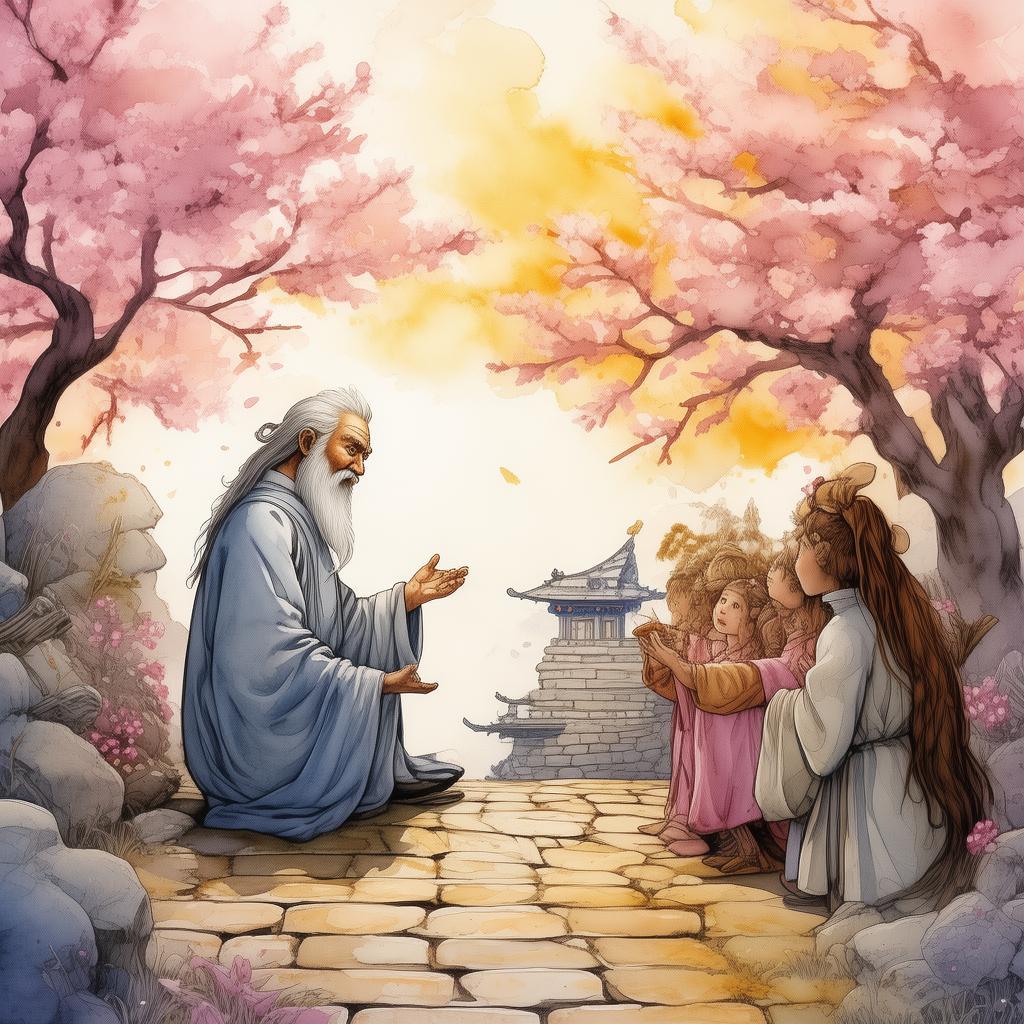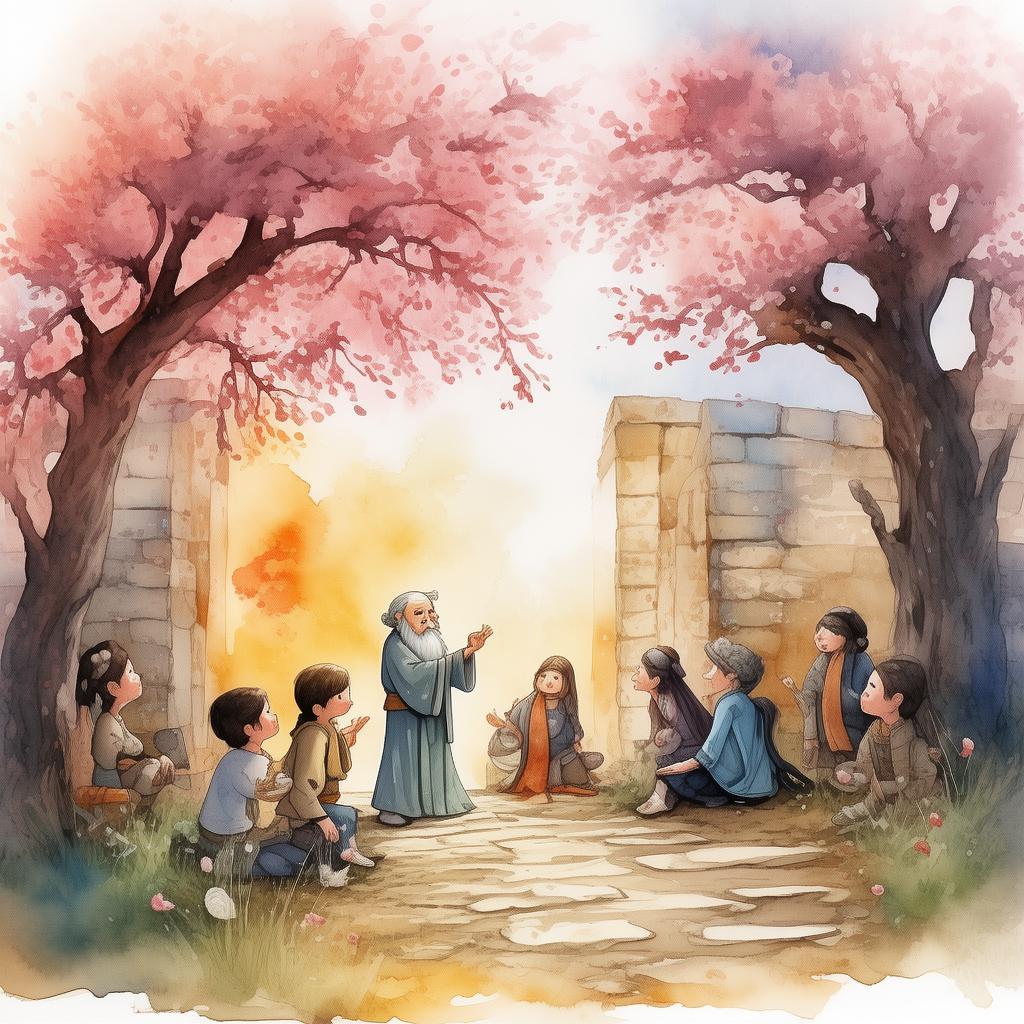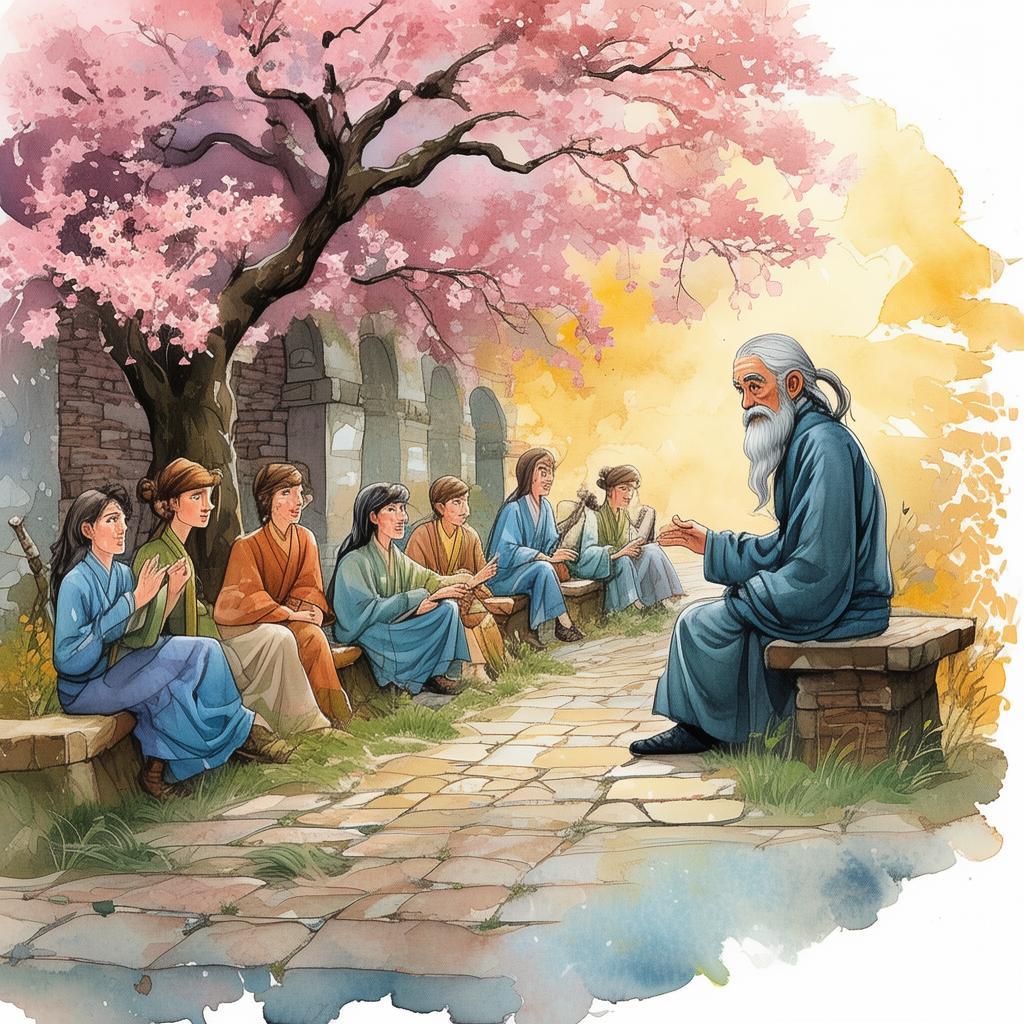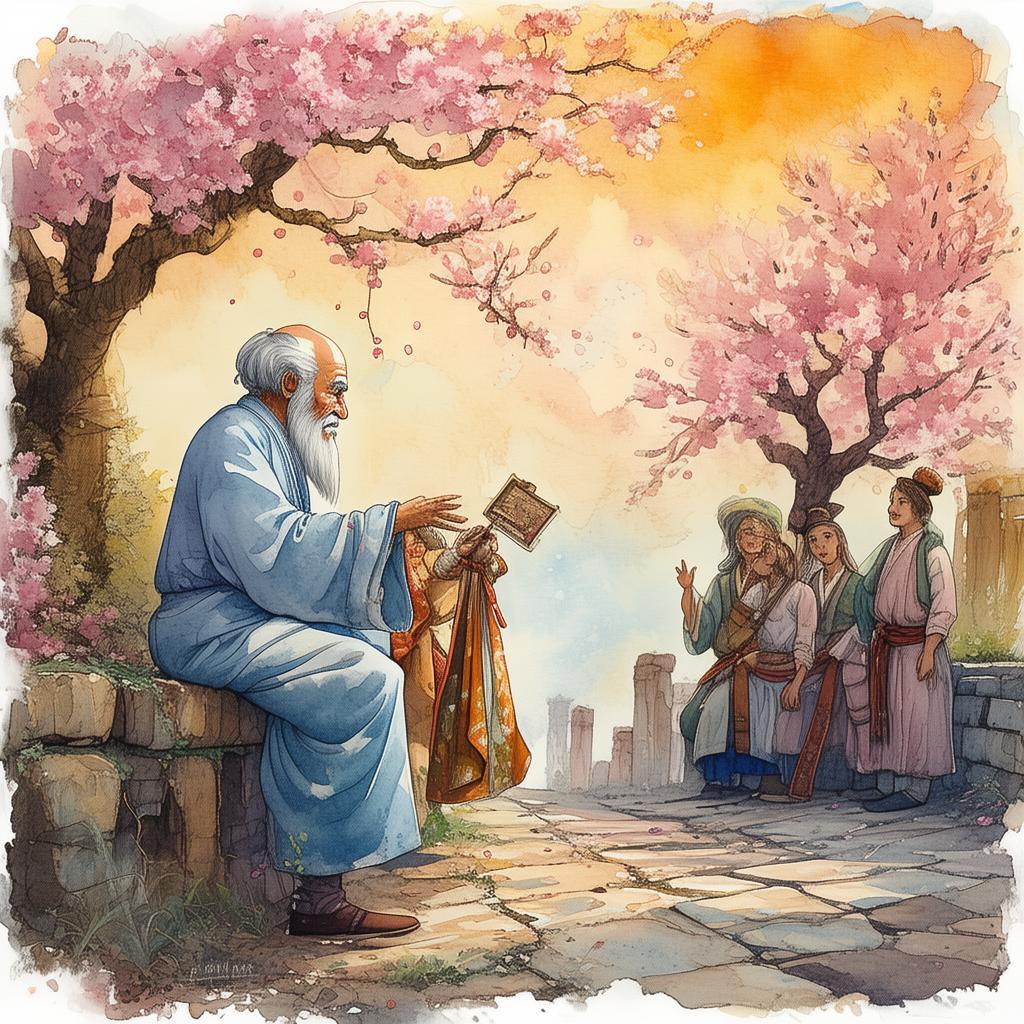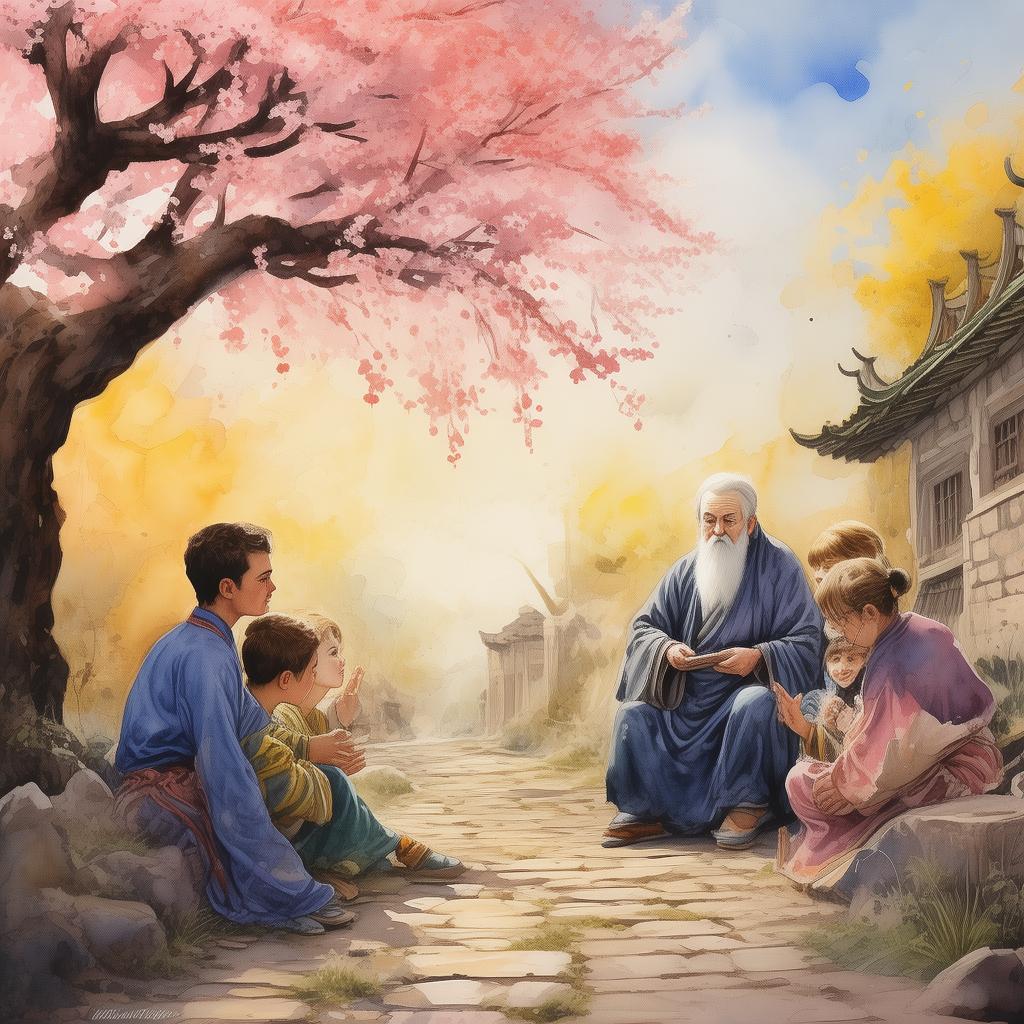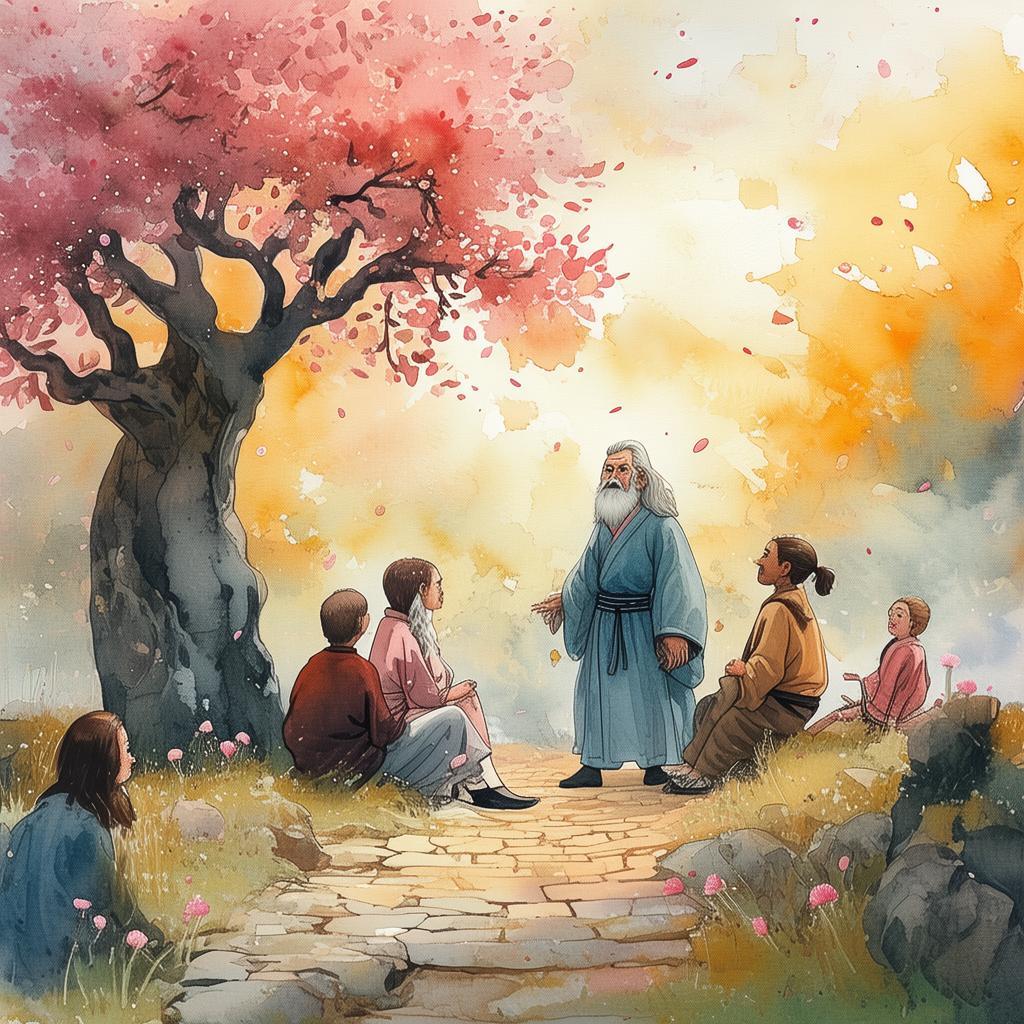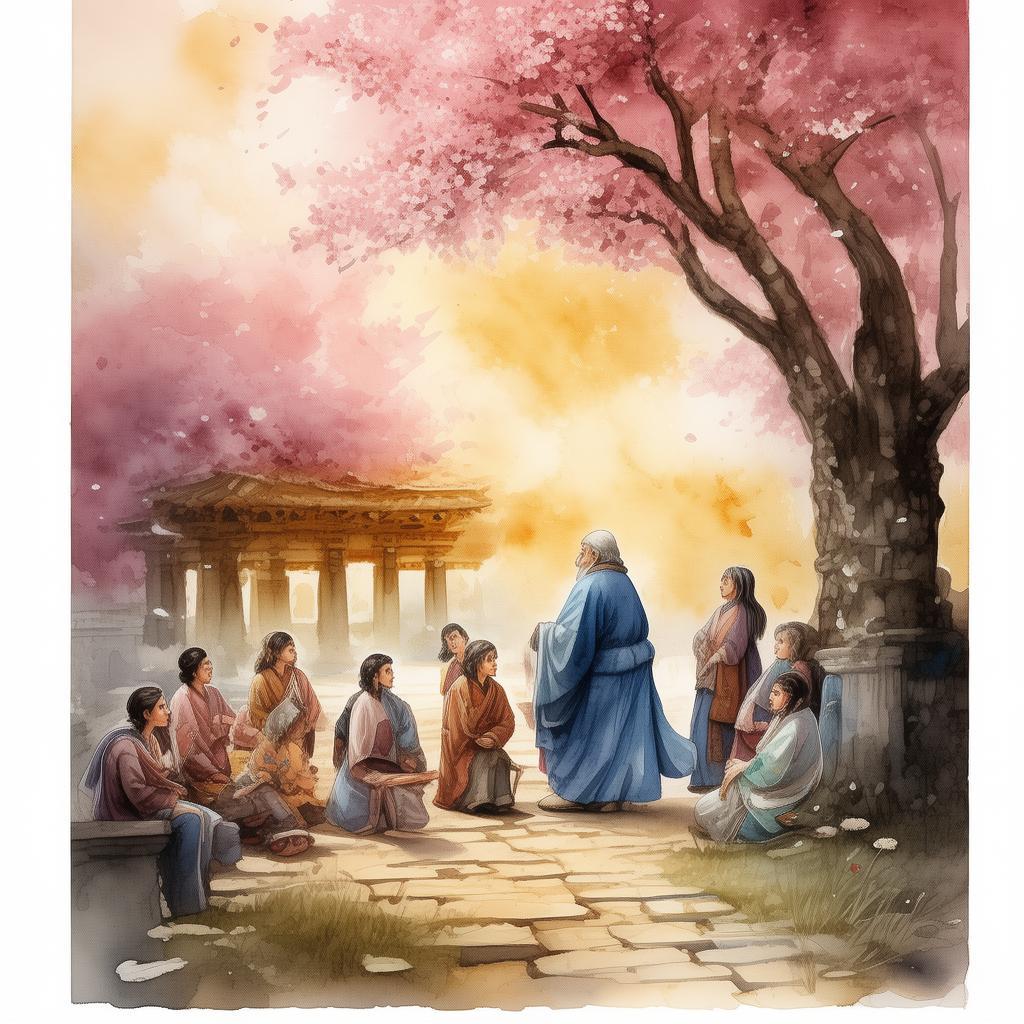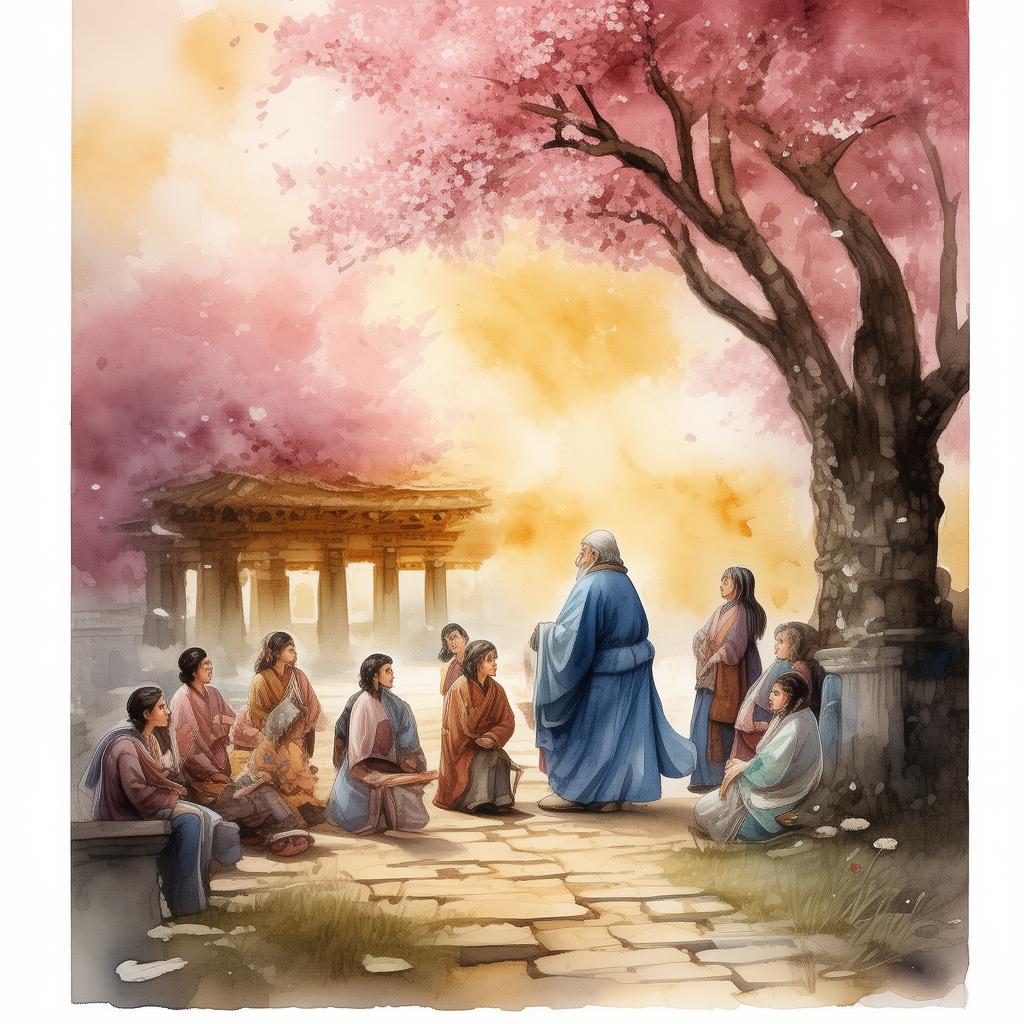The Celestial Chessboard of the Mind: The Quest for Balance
In the tranquil village of Fenghuang, nestled between rolling hills and a serene lake, there lived a young man named Ming. Ming was not like other villagers; he was consumed by the game of chess. His days were spent in the local teahouse, poring over ancient chess manuals and challenging anyone who dared to sit at his table. His passion for the game was so great that he often spoke of it as if it were a part of his soul.
One rainy afternoon, as Ming sat by the window, a mysterious old man entered the teahouse. His eyes were deep and wise, and he carried a small, ornate box. Ming, intrigued by the man's presence, approached him and struck up a conversation.
The old man, sensing Ming's interest in chess, revealed that he was a master of a game far beyond the simple board game. "I speak of the Celestial Chessboard of the Mind," he said, his voice echoing with the weight of centuries. "It is a game of self-positioning, where the pieces are your thoughts, emotions, and desires. The goal is to achieve inner harmony and balance."
Ming's eyes widened with excitement. "You mean to say that chess is not just a game of strategy, but a metaphor for life itself?"
The old man nodded. "Indeed. On the Celestial Chessboard, every move you make reflects your choices in life. The pieces you control are your values, beliefs, and fears. To win, you must learn to position yourself in a way that promotes peace and understanding."
Ming, eager to learn more, asked the old man to teach him the game. The old man agreed, but he warned Ming that the journey would be long and arduous. "You must be willing to confront the darkest corners of your mind," he said. "Only then can you hope to find balance."
The old man began by explaining the basic principles of the Celestial Chessboard. He told Ming that each piece represented a different aspect of his personality. The Rook stood for his principles and values, the Bishop for his intuition and creativity, the Knight for his courage and adaptability, the Queen for his wisdom and influence, and the King for his authority and self-awareness.
Ming spent the next few months studying the old man's teachings. He learned to see the world through the lens of the Celestial Chessboard, analyzing his thoughts and emotions as if they were pieces on a board. He discovered that his Rook was often in conflict with his Bishop, and his Knight struggled to find a path through the maze of his fears.
As Ming's understanding deepened, he began to make changes in his life. He started to value his intuition more, allowing it to guide his decisions. He learned to be more patient with his principles, recognizing that they were a part of his identity. And he began to face his fears head-on, using his courage to navigate the treacherous paths of his mind.
One day, the old man returned to the teahouse. He watched Ming play a game of chess with a local villager, and he was impressed. "You have made great progress," he said. "Your pieces are now working together in harmony."
Ming smiled, feeling a sense of accomplishment. "But there is still much to learn," he replied. "I want to understand the game even better."
The old man nodded. "Then you must continue to challenge yourself. Remember, the Celestial Chessboard is a journey, not a destination. It is about the process of self-discovery and growth."
Years passed, and Ming's mastery of the Celestial Chessboard grew. He used the principles he had learned to navigate the complexities of life. He found that when he was in balance, his decisions were clearer, and his relationships were more fulfilling.
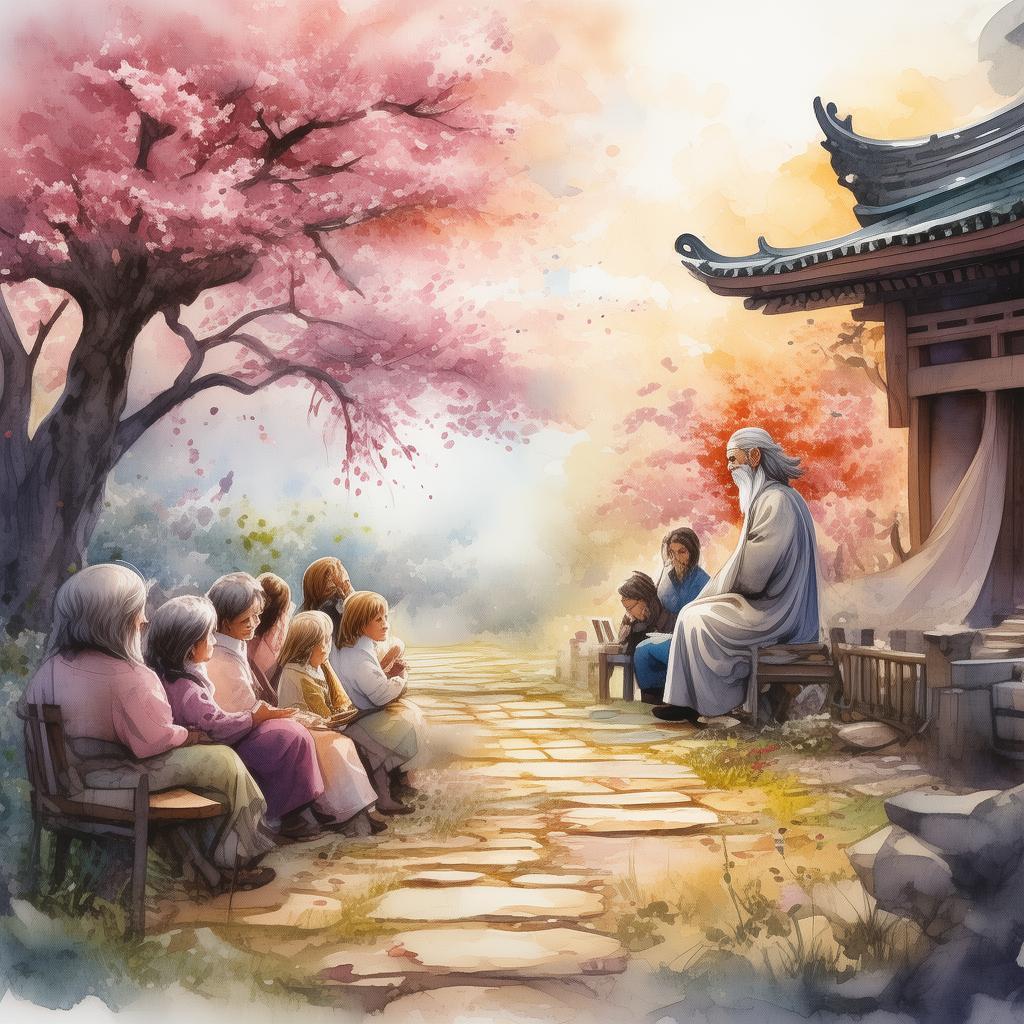
One evening, as he sat by the window, the old man appeared once more. "You have achieved inner harmony," he said. "The Celestial Chessboard is no longer a game for you, but a way of life."
Ming looked at the old man with gratitude. "Thank you for teaching me," he said. "I will carry this knowledge with me always."
The old man smiled and nodded. "And remember, the true victory is not in the game, but in the journey. You have found balance, and that is the greatest victory of all."
Ming continued to live his life with balance and harmony, using the lessons of the Celestial Chessboard to guide him through every challenge. And so, he became a legend in his village, known not just for his chess prowess, but for his wisdom and inner peace.
✨ Original Statement ✨
All articles published on this website (including but not limited to text, images, videos, and other content) are original or authorized for reposting and are protected by relevant laws. Without the explicit written permission of this website, no individual or organization may copy, modify, repost, or use the content for commercial purposes.
If you need to quote or cooperate, please contact this site for authorization. We reserve the right to pursue legal responsibility for any unauthorized use.
Hereby declared.
